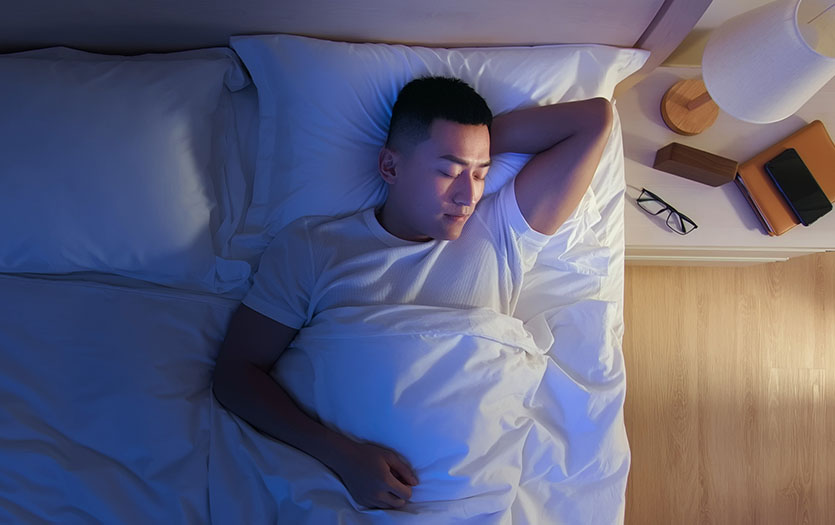
Sleep restriction is a therapy in which you limit how long you spend in bed each night with the goal of getting better sleep over time. Below, we lay out the process, but it’s important to understand that following this schedule can make you feel very tired initially. Limiting your time in bed might be frustrating and seem strange, but over time it can help you fall asleep faster. Your goal will be to gradually increase your sleep time until you get enough sleep each night to feel rested.
Let’s get started …
Managing insomnia with sleep restriction therapy
If you’re considering sleep restriction therapy, you can work with a sleep specialist to find the best schedule for you. Here's how sleep restriction therapy works in general:
- Figure out how much total sleep you get each night, on average. It’s likely that you don’t get the same amount of sleep each night, so an average is sufficient. Keeping a sleep journal or sleep tracking can help you know your sleep patterns and typical sleep times.
- Set a schedule for bedtime and getting up. Plan to stay in your bed each night for only the amount of time that you typically sleep. For example, if you get about six total hours of sleep on average, then only spend six hours in your bed. Make your "lights out" time and the time you get up the same each day.
- When you are out of bed at night, find relaxing activities to do, such as reading or listening to music. Here are tips for powering down.
- After following your new sleep schedule for one week, increase the amount of time you stay in bed.
- Each week, gradually increase the time you spend in bed each night. This will help you start to increase your sleep time, as long as you're not spending too much time lying awake in bed. Your sleep specialist can help you determine how long you should be sleeping compared to how long you're in bed each night. This is called your sleep efficiency.
If you think you might have a sleep disorder, speak with your primary care provider to see if you should have a consultation with a Sleep Medicine doctor.
Copyrighted material adapted with permission from Healthwise, Incorporated. This information does not replace the advice of a doctor.



